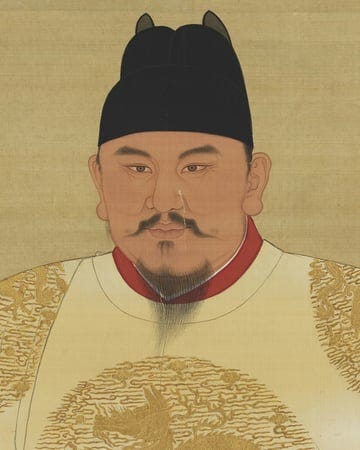China's Crisis of Control
The power of effective taxation
The commons hath he pill'd with grievous taxes, and quite lost their hearts: the nobles hath he fin'd, for ancient quarrels, and quite lost their hearts.
—Shakespeare, Richard II
China’s Changing Role in the 21st Century
When considering possible trajectories for modern China, especially in light of the critical economic issue of taxation, two contemporary historical figures, King Richard II (1277-1399) and Zhu Yuanzhang, the first Ming emperor (1328- 1398) come to mind. The reigns of both men provide parallels and contrasts.
Richard II’s abuse of taxation and fines to control his kingdom eventually led to his downfall and imprisonment. Zhu Yuanzhang on the other hand, rose from abject poverty to rule the Chinese empire, employing brutal methods, including the Embroidered Uniform Guard, to put down his enemies. But as the Ming Dynasty stretched on (1368-1644) the taxation policies of his successors led to its demise as well.
Richard II was of royal birth, but the orphaned Zhu Yuanzhang is one of the most famous underdogs in Chinese history. By the mid-20th century, China itself was a nation left behind. It then staged an incredible recovery from decades of poverty and isolation to become one of the world’s most powerful states.
During China’s recent transition from underdog to rival, the United States has struggled to shift from its initial support of China’s rise to managing economic competition and the specter of future military confrontation. Much of the future US-China relationship is in the hands of Xi Jinping, who also overcame obstacles on his road to power. However, his highly centralized rule has created policy distortions that collide with a global economy that is far more interdependent than Ming China.




